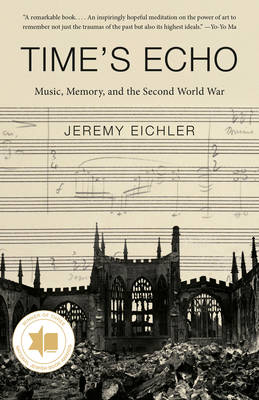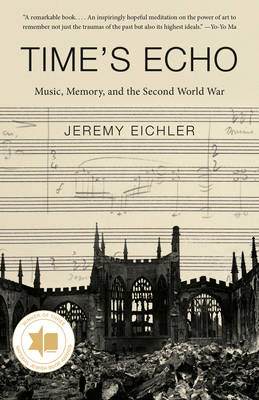
- Afhalen na 1 uur in een winkel met voorraad
- Gratis thuislevering in België vanaf € 30
- Ruim aanbod met 7 miljoen producten
- Afhalen na 1 uur in een winkel met voorraad
- Gratis thuislevering in België vanaf € 30
- Ruim aanbod met 7 miljoen producten
Zoeken
€ 26,45
+ 52 punten
Uitvoering
Omschrijving
A BEST BOOK OF THE YEAR: THE NEW YORK TIMES, NPR - WINNER OF THREE NATIONAL JEWISH BOOK AWARDS - Finalist for the Baillie Gifford Prize for Non-Fiction - A stirring account of how music bears witness to history and carries forward the memory of the wartime past - SUNDAY TIMES OF LONDON HISTORY BOOK OF THE YEAR In 1785, when the great German poet Friedrich Schiller penned his immortal "Ode to Joy," he crystallized the deepest hopes and dreams of the European Enlightenment for a new era of peace and freedom, a time when millions would be embraced as equals. Beethoven's Ninth Symphony then gave wing to Schiller's words, but barely a century later these same words were claimed by Nazi propagandists and twisted by a barbarism so complete that it ruptured, as one philosopher put it, "the deep layer of solidarity among all who wear a human face." When it comes to how societies remember these increasingly distant dreams and catastrophes, we often think of history books, archives, documentaries, or memorials carved from stone. But in Time's Echo, the award-winning critic and cultural historian Jeremy Eichler makes a passionate and revelatory case for the power of music as culture's memory, an art form uniquely capable of carrying forward meaning from the past. With a critic's ear, a scholar's erudition, and a novelist's eye for detail, Eichler shows how four towering composers--Richard Strauss, Arnold Schoenberg, Dmitri Shostakovich, and Benjamin Britten--lived through the era of the Second World War and the Holocaust and later transformed their experiences into deeply moving, transcendent works of music, scores that echo lost time. Summoning the supporting testimony of writers, poets, philosophers, musicians, and everyday citizens, Eichler reveals how the essence of an entire epoch has been inscribed in these sounds and stories. Along the way, he visits key locations central to the music's creation, from the ruins of Coventry Cathedral to the site of the Babi Yar ravine in Kyiv. As the living memory of the Second World War fades, Time's Echo proposes new ways of listening to history, and learning to hear between its notes the resonances of what another era has written, heard, dreamed, hoped, and mourned. A lyrical narrative full of insight and compassion, this book deepens how we think about the legacies of war, the presence of the past, and the renewed promise of art for our lives today.
Specificaties
Betrokkenen
- Auteur(s):
- Uitgeverij:
Inhoud
- Aantal bladzijden:
- 400
- Taal:
- Engels
Eigenschappen
- Productcode (EAN):
- 9780525563440
- Verschijningsdatum:
- 24/09/2024
- Uitvoering:
- Paperback
- Formaat:
- Trade paperback (VS)
- Afmetingen:
- 130 mm x 201 mm
- Gewicht:
- 362 g

Alleen bij Standaard Boekhandel
+ 52 punten op je klantenkaart van Standaard Boekhandel
Beoordelingen
We publiceren alleen reviews die voldoen aan de voorwaarden voor reviews. Bekijk onze voorwaarden voor reviews.











